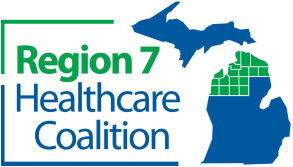|
The Michigan Update: Vaccinations for First Responders
Author: Jennifer Crooker, BSPH, CHES®, MDHHS Division of Immunization First responders are the first line of protection for the community and therefore also at a higher risk for disease. To best protect themselves and their communities, first responders should ensure they are up to date on all their vaccines. Infectious disease places EMS workers, law enforcement, fire fighters, and first responders at risk of becoming ill along with their families and community members. An outbreak of infectious disease among first responders can also hamper response efforts by increasing absenteeism and compounding staffing shortages. Vaccination is an important way to mitigate these risks. Two vaccines are currently recommended for disaster responders by the Centers for Disease Control and Prevention (CDC): Tetanus is recommended for all first responders and hepatitis B is recommended for those who may come into contact with bodily fluids (CDC, 2019).
Healthcare workers are also strongly advised by CDC’s Advisory Committee on Immunization Practices (ACIP) to stay up to date on these vaccines: hepatitis B, influenza, tetanus/ diphtheria/pertussis (Tdap) or tetanus/diphtheria (Td), measles/mumps/rubella (MMR), varicella (chickenpox), and COVID-19 (CDC, 2011, 2023a). Seasonal upper respiratory illnesses including influenza, respiratory syncytial virus (RSV), and COVID-19 are also risks for first responders as they work in their communities. As one EMS provider writes in EMS1 Magazine, “It’s easy to groan when the pager squawks out yet another ‘sick person, possible flu’ call, but these folks can be really ill, and they need our help. But they can also easily spread that illness to us and our families” (Fraley, 2019). COVID-19 has hit first responders particularly hard. Data from 2020 indicate that workers in “protective service” occupations- police, firefighters, fire inspectors, correctional officers, private detectives, security guards, and probation officers- had the highest death rate from COVID-19 that year of all occupational groups (60.3 per 100,000), more than double the overall rate for all workers (28.6 per 100,000) and almost double that of healthcare workers (31.2 per 200,000) (Kekatos, 2022). According to the Officer Down Memorial Page, 62% of officer deaths in 2020 (284 officers) and over 70% (501 officers) in 2021 were due to COVID-19 (Officer Down Memorial Page, 2024). According to the U.S. Fire Administration, in 2021 of the 141 firefighters that died while on duty, 63 died from COVID-19 (U.S. Fire Administration, 2021). For best protection, first responders should ensure they are up to date on flu, COVID-19, and RSV vaccines, especially as respiratory viruses are still circling. Routine annual influenza vaccination is recommended for all persons aged ≥6 months who do not have contraindications. Further, CDC recommends the 2023–2024 updated COVID-19 vaccines to protect against serious illness from COVID-19. Staying up-to-date with COVID-19 vaccines
0 Comments
Leave a Reply. |
Archives
July 2024
Categories |
To activate the Region 7
Medical Coordination Center call:
Gaylord Regional
Communication Center
1-989-732-5141
During your call, include the following information:
- Your name and contact number.
- Your agency or hospital.
- The reason for requesting the resource.
- Exact location to where you need the resource delivered.
- Who will accept and sign for the resource.
Medical Coordination Center call:
Gaylord Regional
Communication Center
1-989-732-5141
During your call, include the following information:
- Your name and contact number.
- Your agency or hospital.
- The reason for requesting the resource.
- Exact location to where you need the resource delivered.
- Who will accept and sign for the resource.
Site Map |
Organization |
Copyright © 2014 | 2464 Silver Fox Trail Suite A, Gaylord MI 49735 | 989.748.4975
|
 RSS Feed
RSS Feed
